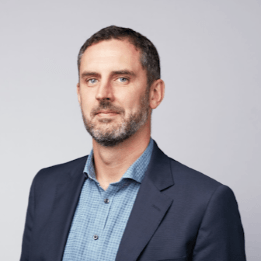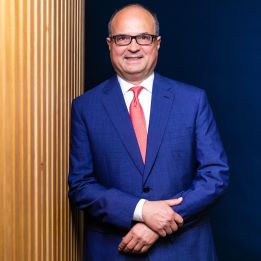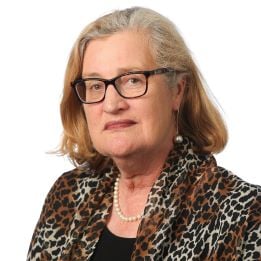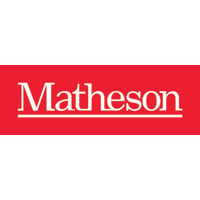
Ireland 2024
Supported by the Association of Corporate Counsel





General counsel and company secretary | Keywords Studios



Senior counsel, global transactions team – European lead (M&A) | Canada Life

General counsel and director of legal services | The Commission for Communications Regulation (ComReg)

Associate General Counsel, EMEA Region | Spencer Stuart



Group general counsel and company secretary | Greencore Group





Associate General Counsel - Cyber & Information Security (EMEA) | Meta Platforms Ireland










General counsel, head of legal and compliance | ORIX Aviation






Legal counsel and company secretary | Volkswagen Group Ireland and Volkswagen Financial Services Ireland

Senior vice president and assistant general counsel (Private Banking EMEA) | Citi










Assistant General Counsel, Head of Asset Servicing Legal Ireland | Northern Trust Corporation




Vice president legal, general counsel, Europe | Schneider Electric



Associate General Counsel, Head of Legal Asset Servicing EMEA | Northern Trust Corporation

General counsel and chief risk officer | Deloitte ireland





Chief legal officer and chief corporate and external affairs officer and company secretary | Bon Secours Health System CLG




Former chief of operations, corporate general counsel and company secretary, Amarin Pharmaceuticals Ireland | Amarin Pharmaceuticals Ireland



Head of Data Protection and Associate General Counsel | Meta Platforms Ireland



Legal Director | DePuy Ireland UC (part of the Johnson & Johnson group)





Group general counsel and company secretary and director of shares services | Speed Fibre Group





Group general counsel and company secretary | Flutter Entertainment










General counsel, company secretary and chief executive officer | AmTrust International

Chief legal and regulatory officer, company secretary | Ryanair





Vice president global employment, compliance and business ethics | Sitecore


Vice president, corporate secretary and general counsel EMEA | Eaton



General counsel and chief corporate affairs officer | Virgin Media










The Legal 500 is delighted to present the GC Powerlist: Ireland 2024. After a successful Teams edition last year, we are pleased to return our attention to the activities of in-house counsel that play a leading role in driving their companies forward, while navigating risks – both business and legal; fulfilling the role of true business partners, taking on additional functions in the process; and championing diversity and inclusion in their organisations.
A major theme this year involved general counsel prioritising horizon scanning by monitoring upcoming legislation or regulatory changes, with the primary aim of proactively identifying and managing business and legal risks. Alison Mitchell, general counsel at Vuelta Group states, “In an ever-changing and complex geo-political world, being aware of relevant matters, albeit sometimes outside our control, allows us to anticipate and pivot if necessary.” Marlene Connolly, Centrica, describes this as a way to to “future-proof the protections of the organisation’s ever-evolving needs by looking around corners; asking the “what ifs”; answering the “so what’s”; and building in as much flexibility, contingency and risk mitigation as possible.”
With the impressive leaps in the artificial intelligence space in recent years, it is not surprising that the general in-housel legal function continues to closely follow the emergence and use of AI, and are excited about its potential use in driving company growth and departmental efficiency. Of course, heads of legal are tasked with overseeing the transformative potentials of AI. According to Philip Merrills-Dearn, general counsel at RC “The general counsel’s role must also ensure how certain new (AI) technologies enhance the ability of legal and compliance teams to deliver on tasks.”
Still, majority are choosing to exercise caution on its use until it is properly regulated, and emphasise the importance of human-led AI utilisation. Nicola O’Connell, general counsel, Ireland at Zurich Insurance Europe, recommends scepticism when utilising AI in day-to-day work: “We need to maintain a healthy scepticism about content generated by AI, which can appear highly credible but is not accurate.” Caroline Dee-Brown, general counsel and director of legal services at ComReg no doubt echoes the stance of several lawyers on this topic. “We would like to avail of the relevant opportunities arising from evolving AI tools, but with the appropriate governance to ensure there is a process to identify any risks arising from the proposed use of a new AI tool; consider our ability to mitigate those risks; and if any risk remains, to decide if the benefits outweigh the risks.”
Another theme in this year’s entries is the relationship between in-house teams and external law firms. General counsel would like to see flexibility in billing, with the option of innovative approaches, such as customised billing and payment structures being a popular demand. The use of legal tech in-house to save costs and drive efficiencies is increasingly being explored. It has also become vital for law firms to share the same values as their customers; majority of in-house counsel would be willing to reconsider their partnerships with law firms if they do not share the same values.
A large number of the submissions revealed a trend in the expanding role of the general counsel, from a purely legal function to that of business partners. This has required them to don several hats in the process. Many of the lawyers interviewed discussed playing prominent roles in driving DEI, ESG and CSR initiatives, in human resources, and in technology. Marlene Connolly states, “The trend of in-house lawyers taking on additional areas of responsibility outside of pure legal will continue in areas such as legal operations, HR, and IT, and the role of the general counsel as chief of staff is emerging.”
James Murray, head of legal and company secretary at RSA Insurance Ireland observes, “The last decade has seen a massive increase in the in-house legal sector as businesses recognise the business benefits and potential cost savings associated with having experienced in-house counsel with knowledge of the business itself and its key stakeholders.” The role of the legal function having a place in the C-Suite and the board of directors was extensively discussed in this edition, with the opinion that such proximity could improve the relationship between legal and the wider company; aid in proactively identifying risks while providing alternative solutions that would drive opportunities for the business; and cement the perception of the legal team as true business partners or enablers.
On behalf of The Legal 500, I extend my sincere thanks and congratulations everyone who featured in this edition, and graciously contributed their time and insights to make this year’s GC Powerlist: Ireland 2024 a success.
Funke Olufon | Lead Researcher, GC Powerlist Ireland 2024

On behalf of the partners at Matheson, I would like to extend our congratulations to each of the individuals who have been included in the GC Powerlist for 2024.
The role of general counsel has never been more important. Changing economic and geopolitical challenges, an ever-changing and fast-growing digital economy and the introduction of new regulations and complex legislation are all placing increased demands on in-house counsel. You are being looked to more and more by your boards and senior management for your expertise and advice to ensure that your businesses continue to succeed.
We understand these challenges. International clients increasingly come to us because of our broad range of skills, our depth of knowledge and our commercial understanding. We believe that those are attributes which all of the firms on this year’s list share. At Matheson, we are proud to work closely with so many GCs across many different industries – via colleagues on in-house secondments or directly – and we are privileged to be in a position to observe their skills and expertise at first hand and to help them to address the challenges they face.
The 2024 edition of the GC Powerlist has again succeeded in identifying those in-house counsel who have performed exceptionally well across a diverse range of organisations and industries, and being included is an important recognition of success.
The legal services market in Ireland continues to grow and develop, as does the role of the GC. As a large full-service law firm with more than thirty practice areas, Matheson and our lawyers are evolving too. Our new Digital Economy Group – a cross-functional team drawn from specialists within a number of market-leading departments across the firm – supports our clients in navigating the complexities of the digital landscape today. Our Digital Services Group, led by Kyle Gribben, works with GCs to develop bespoke technology solutions to deliver the individual tools that they need to stay informed and in control. The Matheson Horizon Tracker, produced by our Knowledge Management team, ensures that our clients receive the most relevant and up-to-date information they need, almost before they need it.
We are delighted to have teamed up once again with The Legal500 to produce this year’s list, and we are grateful to each of you for participating in this year’s edition. Congratulations again to everyone who has been included.
Thank you.
Michael Jackson
Managing Partner
Matheson LLP
Legal 500 returned to Miami to celebrate the launch of the GC Powerlist: Miami 2026, hosted in partnership with Winston & Strawn. The event brought together leading in-house counsel from across the city for an evening recognising their work, leadership, and clear impact within their organisations.
Juan Azel, Chair of Winston & Strawn’s Fintech, Banking and Payments practice, opened the evening with remarks on the opportunities emerging from Miami’s economic growth.
He was followed by keynote speaker Nilo J. Barredo, Head of Legal, Wealth, Banking & Lending for the Americas and Director, Associate General Counsel at Citigroup, who shared perspectives on the evolution of Miami’s in-house ecosystem.
A reception followed, giving this year’s honourees the chance to connect with peers and exchange experiences.
Legal 500 extends its thanks to Winston & Strawn for supporting the recognition of Miami’s outstanding general counsel community, and congratulates all recognised general counsel on their achievements.